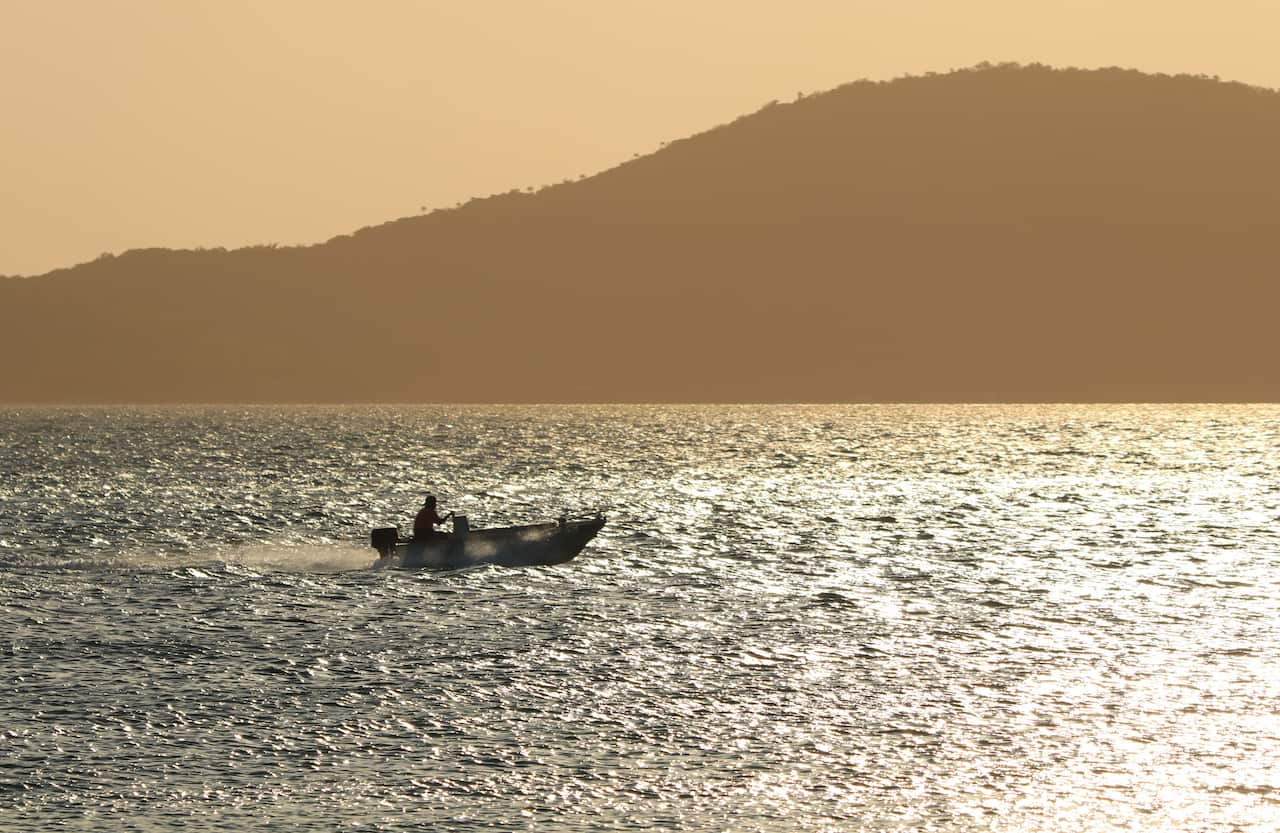The Torres Strait Island Regional Council (TSIRC) has slammed the federal government for using local fishermen and their personal dinghies to assist the Australian Border Force (ABF) in search and locate operations of unlawful international arrivals.
On Monday June 6, five men believed to be unlawful arrivals from Senegal in West Africa were located in mangroves on Saibai Island.
TSIRC has also renewed calls to bolster services and invest in resources in the Torres Strait, which is on the frontline of Australia’s only active international border.
Saibai is just 4 kilometres from Papua New Guinea – the neighbouring country’s shoreline is visible from the island.
TSIRC’s councillor based on Saibai Island says she’s since learned that two weeks before the unlawful arrivals were detained, the ABF had asked local fisherman to escort them out onto the water to search for the men.
Cr Chelsea Aniba said when the men were heard calling for ‘help’ from some mangroves last week, customs again asked some fisherman to escort them to retrieve the men.
Both times the local fisherman used their personal dinghies and the customs staff were unarmed.

The men were discovered amongst mangroves on Saibai Island last week. Credit: Supplied
“The Australian Border Force have been in contact with locals and told them if they go out on their boats hunting, if they come across any people from Africa to let them know [and were] basically were providing them fuel.”
Cr Aniba said that the ABF did not have a vessel based on Saibai, and relies on its vessels to travel from Thursday Island to assist.
She said the ABF purchased the men a drum of fuel each for their assistance.
“If you're working in relationship with other agencies, you can have a boat – if they work together with the Torres Strait Regional Authority (TSRA) rangers, they have a boat or work together with the local SES,” she said.

TSIRC Cr. Chelsea Aniba said no government representatives or agencies had contacted the council about the matter. Credit: Supplied
She said she discovered the Australian Border Force was also not communicating with local border force personnel based on island.
“The bottom line is there's no good relationship there – why?
“There should be at a real relationship there, we are all working here to service the community and the international treaty.”
ABF conduct questioned
Federal Member for Leichardt Warren Entsch said he will be talking to the Australian Border Force about their process during the incident.
“I'll certainly follow up with federal agencies to first of all, confirm it's factual and get the information directly from them,” he said.
“I have serious concerns about that, this as a job for the authorities, it's not a job for civilians,” he said.
Mr Entsch said he felt the current system was working well.
“The local community, have a really good understanding on who should or shouldn't be there,” he said.
“If there's somebody not to be there, they’re generally reported very, very quickly.”
Cr. Aniba said the ABF were operating out of a donga, despite a new $13-million-dollar facility built in 2020 remaining underutilised.
“The Australian government needs to do something and Warren Entsch needs to do something on his level because of the seriousness and the location of Saibai,” said Cr. Aniba.

Saibai Island Community Safety and Security Facility Credit: Stefan Armbruster
“Wildlife can get affected natural resources, our poultry, our beef, all of these things can get affected.
“We are here in the frontline doing our job with the 15 communities in the Torres Strait to stop that from happening.”
The high-tech security post was intended as a multi-agency facility to bring the AFP and ABF staff closer to the isolated outer islands.

The ABF is operating out of a donga on Saibai Island, while a $13 million dollar facility goes largely unmanned Credit: Supplied
NITV has contacted Ms Lui’s office for comment.
Renewed calls to bolster services

Locals say illegal activity in the Torres Strait is increasing Credit: Carli Willis
Cr. Aniba said calls for better frontline services in the Torres Strait were not new.
“It's not only now that we are identifying this, this has been spoken in previous councils in previous leadership over the years – the government should be coming to the table,” she said.
“This is a normal occurrence that happens, our resources are inadequate and we have to combat these issues daily,” she said.
Cr. Aniba said there were numerous Border Monitoring Officers and Police Liaison officers based on the islands who could only watch and report incidents.
She said these positions – who are often valued and regarded members of their communities – should be given compliance powers.
“Some of these people have been in those positions for over 10 or 20 years,” Cr Aniba said.
“Where is that acknowledgement or recognition to the work that they do over these years?”
“If it was another country’s border it wouldn't be like this.
“Is it because we are only Torres Strait Islanders and we're just here and they give us small positions just to be the eyes and the ears? Come on.”











